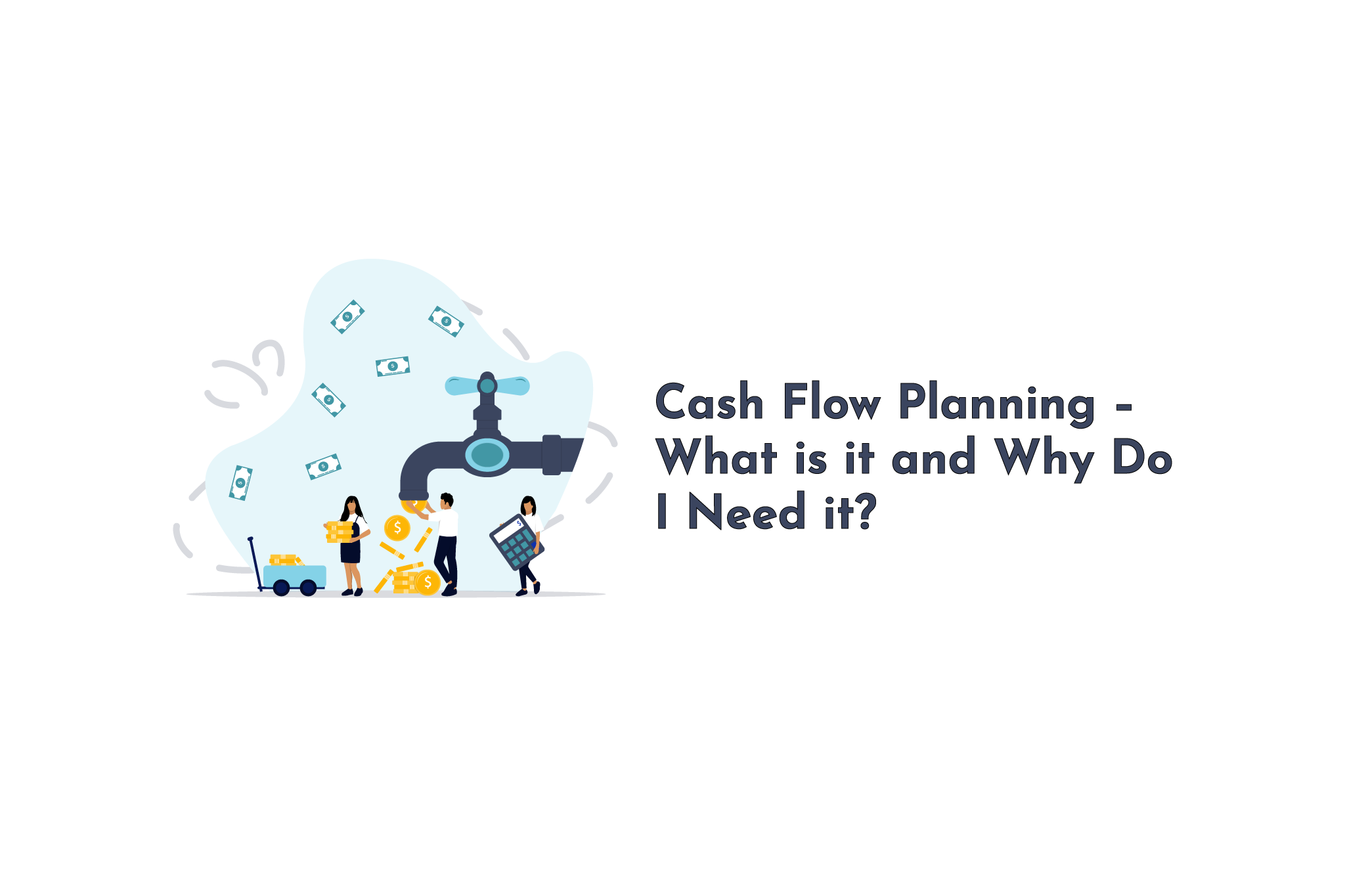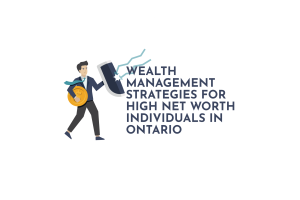Have you ever taken the time to sit and figure out what happens to your money every month? Some of it goes to housing costs; there are your living expenses, such as food and transportation, and then there are ‘discretionary’ costs. Understanding where your money goes is essential for your household because it forms the backbone for the entirety of your financial plan. In many cases, creating a cash flow plan should be the opening step in your interactions with a financial advisor. Think about this: when you meet for the financial planning process, you will discuss your dreams, your goals and how you see your future unfolding. Cash flow planning is so important here because you need to understand that to make sure that you can fund your financial plan. If you don’t know where your money goes, how do you know if you can fund your goals? Cash flow planning is a full process, so let’s look at what it is, what it isn’t and how to get it done.
In This Article:
- What is Cash Flow Planning?
- What Isn’t Cash Flow Planning?
- The Cash Flow Planning Process
- Who is Cash Flow Planning For?
What is Cash Flow Planning?
Cash flow planning analyzes your money coming in and going out every month and then comes up with a plan to use this money in the most efficient way possible. A cash flow planner will look for ways to optimize your financial picture. They should help you take steps to identify what your fixed monthly expenses are and what the best way to pay them is. They will also work with you to set goals for what to spend on discretionary expenses every month to avoid too much ‘spillage’ happening in unsuspected areas. Finally, and typically most importantly, they will work with you on a plan that makes for the most effective way of managing your household debt. This should include everything from your mortgage to credit cards and lines of credit. Coming up with strategies on how to deal with these items will allow you to understand what your cash flow is every month and how you can enhance what you are doing to maximize the value of every dollar that comes into your household.

What Isn’t Cash Flow Planning?
Cash flow planning is not a ‘budget.’ When people think of a budget for themselves, what they typically picture is a spreadsheet that records what they spend every month, and then they decide to try to shave 15% off the previous month’s numbers and never, ever go over that amount. A budget doesn’t look for places where you are being inefficient with things, and it really doesn’t offer ways to improve from what you are currently doing. The reality is that for most people, living with a ‘budget’ carries a negative feeling with it. Suppose someone feels like they are being forced to live on a ‘budget’ and often also feel like they need to deprive themselves of things. If you try to live this way and end up with these types of negative feelings, how long will you continue that path? People don’t like things that they feel are restricting them. Think about that new diet you tried last year. The first month went great; you were committed to it and ate salads for lunch every day. The second month was less committed because the salads weren’t as appetizing anymore, and in the third month, you are back to the same pattern you were in prior to starting: no more salads for lunch at all. It’s because you feel restricted, and when you feel that way, the chances that you stick with something are greatly reduced. The same mindset can apply to someone who is ‘trying to live on a budget.’ When they feel like they’re missing out on stuff, their resolve to stick to the plan simply won’t last. The plan goes out the window, and they go right back to the way things operated before. A cash flow planner won’t do this with you. As I mentioned, they look for ways to improve efficiency and maximize what you get out of your cash flow, finding money for you to spend on things that are important to you. You should feel good about your cash flow plan. It’s survival is relying on that.
The Cash Flow Planning Process
Since this is a complete analysis of your cash intake and output, you will find that cash flow planning is a very thorough process.
- The first step is going to be to connect with a cash flow planner. Like all of your team of advisors (think lawyers, accountants, mortgage brokers, etc.), you need to meet with someone and discuss what you want to get out of the process and figure out how they can help you. You need to know that you like the person you’ll be dealing with and that you trust them. Trust can take more time to build, but the reality is that if you don’t like the person, you’re far less likely to trust them in the long run.
- Once you’ve determined that there is a good fit with the planner, they should ask you to do some homework. They’re going to need a complete picture of your financial situation. They will want to see income, expenses, debts, and assets. They will need to see where your money goes every month as well. They may ask you to compile data from over a few months to make sure that they are getting a complete picture of what is going on.
- You will also meet with the planner to discuss what your long-term goals are. Are you simply looking for a plan that will help you pay off any debts that you have faster, or are you looking for a way to free up some money every month to allow you to save more for the future or add insurance to your financial security plan? Whatever your goals are, make sure that you express them clearly with the planner so that they can come up with a solution that meets with what you are looking to achieve.
- Your planner will then take the information you have provided about what your goals are and the technical data about what your cash flow currently looks like, and they will create your plan. This doesn’t happen in front of you. Instead, you will need to book a follow-up meeting to go over the findings and decide how you are going to implement the plan.
- The implementation step will involve applications for the tools needed to implement the plan. For example, you may need to apply to change a traditional mortgage into a home equity line of credit-based product. You may also need to change the way that you bank and open new accounts. Remember, this will be a new way of managing your cash flow, and it is designed by an expert who will make the most efficient plan possible for you. The data that backs the plan is proven, and it works if you do your part as well.
- The final step is the ongoing monitoring of the plan. You will need to book regular reviews of things with the planner to make sure that you are on the right track, particularly when the plan is new. While you are adjusting to things, these regular check-ins allow you to talk with the planner and make sure that what was implemented fits into your lifestyle (remember, if it feels like a burden, you are likely to abandon it). The planner also needs to be able to see what is going on in case there was something missing when you provided your original money in and out data set.

Who is Cash Flow Planning For?
Here is the beauty of this type of planning. It is really for everyone. If you feel like things are out of control and you can’t see your way out of the debt that you’ve accumulated, a cash flow plan can lay out the most efficient way out for you. If you are early in your life and want to make sure that you have a plan that supports retirement savings and other parts of overall financial security, it works for you. If you are retired and want to make sure that you have a full understanding of the way your money is working for you, a cash flow plan can show you that as well. Because it is more about analyzing what you have in place and looking for efficient ways to achieve your goals with what you have, it really is a great solution for everyone. When it comes down to brass tacks, everything in your personal finances is related to cash flow. People like thinking about creating an investment plan that provides them with big annual returns and a happy life while they ride off into retirement. The ability to do that is based entirely on having the cash to support the plan in the first place. Understanding the cash flow you have and how it is working for you makes planning for the future that much easier. At Strata Wealth many of our advisors are Cash Flow Specialists and we would love to assist you in your cash flow plan.




